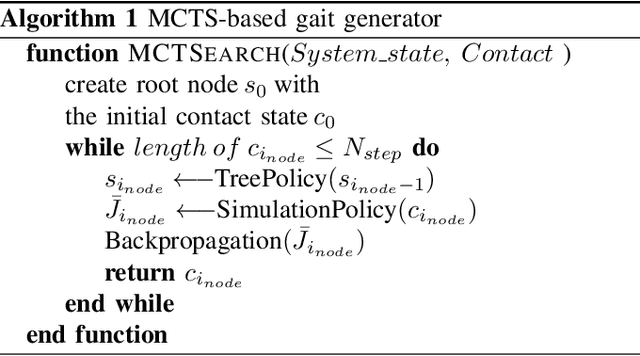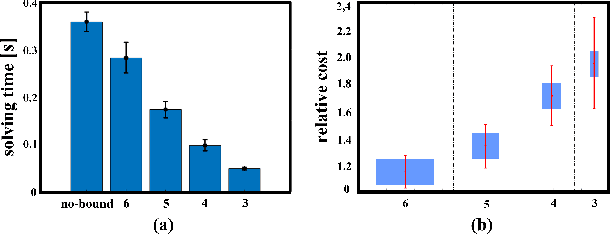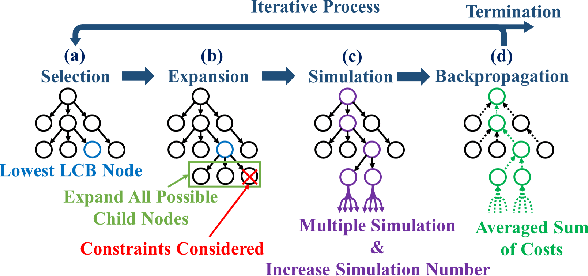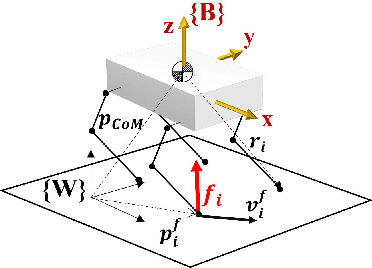Monte Carlo Tree Search Gait Planner for Non-Gaited Legged System Control
Paper and Code
May 28, 2022



In this work, a non-gaited framework for legged system locomotion is presented. The approach decouples the gait sequence optimization by considering the problem as a decision-making process. The redefined contact sequence problem is solved by utilizing a Monte Carlo Tree Search (MCTS) algorithm that exploits optimization-based simulations to evaluate the best search direction. The proposed scheme has proven to have a good trade-off between exploration and exploitation of the search space compared to the state-of-the-art Mixed-Integer Quadratic Programming (MIQP). The model predictive control (MPC) utilizes the gait generated by the MCTS to optimize the ground reaction forces and future footholds position. The simulation results, performed on a quadruped robot, showed that the proposed framework could generate known periodic gait and adapt the contact sequence to the encountered conditions, including external forces and terrain with unknown and variable properties. When tested on robots with different layouts, the system has also shown its reliability.
 Add to Chrome
Add to Chrome Add to Firefox
Add to Firefox Add to Edge
Add to Edge